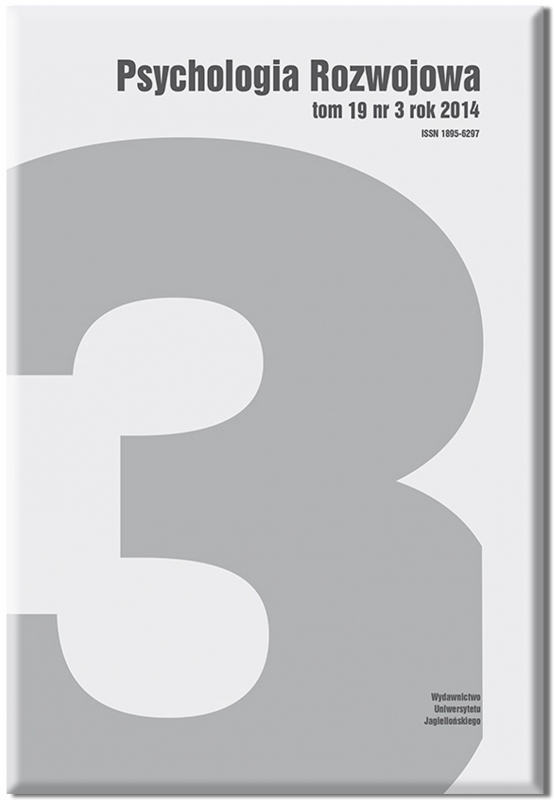Relacyjna specyfika perswazji w dziecięcych zabawach w przekonywanie
Relational specificity of persuasion in children’s persuasive plays
Author(s): Anna KołodziejczykSubject(s): Individual Psychology, Social psychology and group interaction, Cognitive Psychology
Published by: Wydawnictwo Uniwersytetu Jagiellońskiego
Keywords: persuasion; theory of mind; perspective taking; role-playing game;
Summary/Abstract: Research suggests that social cognitive abilities, particularly social perspective-taking and theory of mind (ToM), play a role in the development of persuasion in early and middle childhood. In the presented study, the inner state talk and perspective-taking in a natural persuasive play context were studied to explore the relational specificity of persuading an adult or a peer. Ninety 5 to 7-year-old participated in a novel persuasion role-play task in which children were invited to convince an interactive puppet-partner. The results showed that while persuading an adult, children more often included terms used to denote thoughts, memories, or knowledge, that is cognitive inner state talk, as compared to persuading a peer playmate, when they more often referred to emotional and motivational states. Talking about the personal perspective of the persuaded person or the shared perspective of both play-characters was connected with the use of direct-bilateral persuasive strategies, like compromise or bargaining.
Journal: Psychologia Rozwojowa
- Issue Year: 21/2016
- Issue No: 3
- Page Range: 69-88
- Page Count: 20
- Language: Polish

